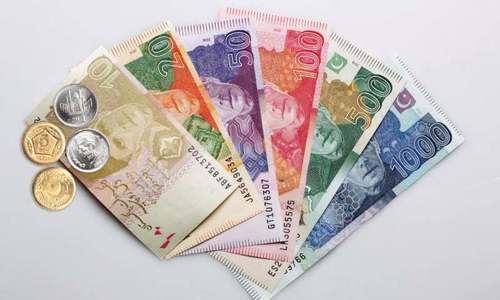Channelling financial flows toward sustainable development is crucial for Pakistan to achieve the 2030 Agenda, or what we know as Sustainable Development Goals (SDGs). However, financing gaps remain large despite a growing momentum in the public sector for sustainable development investments over the last few years as mobilisation of resources falls far short of what is actually required.
“The public sector accounts for more than 90 per cent of financing for sustainable development in Pakistan,” a person, who’s associated with the federal SDGs unit, told this correspondent on the condition of anonymity as he is not authorised to speak publicly.
“The public sector has come a long way from ‘simple development programmes’ a few years ago to ‘sustainable and inclusive development programmes’ by slotting in both the federal and provincial budgets the strategies to achieve the 2030 Agenda,” he said. Elaborating, he pointed out that the public financing targeting SDGs flows from both current and development sides of the federal and provincial budgets.
”The current or non-development spending forms the core part of SDGs as it is required to ensure the sustainability of the projects and measures implemented under development initiatives for achieving the goals related to the social sector, infrastructure, security, energy, climate and so on,” he argued.
The second major source of financing comes through the private sector’s investments to ensure compliance of sustainability goals through the companies’ corporate social responsibility (CSR) spending. But the share is very small in the overall financing for SDGs. “Then we have civil society expenditure on such initiatives that help to contribute towards achieving the 2030 Agenda. But this kind of financial contribution to SDGs is too small. So is international financing for undertaking SDG-related initiatives,” he said.
No official estimates have so far been worked out to assess the financing needs for achieving SDGs; a 2018 research report projects public investment of Rs13.7tr in Punjab
The universal set of 2030 development sustainable goals, targets and indicators covers three dimensions: social, economic and environmental. These are also known as the three main pillars of sustainable development. The goals demand reconsideration of development procedures, substantial financial resources and significant investments in important areas identified under this universal agenda.
The economic slowdown under the PTI rule followed by the Covid outbreak is believed to be a major setback to the movement in Pakistan as many critical socioeconomic issues like education, infrastructure development, and employment suffered have suffered immensely in the last three years. Nonetheless, officials insist, the changed policy focus on ‘greater inclusivity and sustainability’ has somewhat helped mitigate the impact of the reduced spending on areas related to SDGs in recent years. “The targeted spending means we can achieve better results even with smaller investments,” a Punjab government official said, seeking anonymity.
Although no official estimates have so far been worked out to assess the financing needs for achieving SDGs in the stipulated timeframe to avoid ‘political controversies’, a Punjab Economic Research Institute (Peri) report prepared in 2018 pointed out that massive public investment of Rs13.7 trillion was required in the province for covering four goals, 13 targets and certain specific indicators integral to the global sustainable agenda by 2030.
According to it, if future provincial budget allocations in the social sector remain akin to previous trends then, on average, Rs7.5tr of public spending will be required to halve poverty, Rs5.3tr to attain all the healthcare targets, Rs393 billion to meet the education target, Rs201bn for providing safe drinking water and Rs320bn for sanitation facilities by 2030. The actual spending since the publication of the report has been only a fraction of what is needed.
“It does not matter if we achieve the goals or not by the deadline as long as we are on right track. What harm will it do if we achieve SDGs in 2040 or 2045? What matters is political will and persistence to continue our march in this direction by streamlining public investments and aligning them with sustainability goals,” a researcher linked with Peri argued.
“In my view, we’ve started our journey and we will reach the destination later if not sooner.” That sounds rather optimistic in spite of the reorientation of the federal and provincial budgets.
But financing gaps are not the only problem hampering faster progress on the global sustainability agenda. The pace at which the government has moved to reform and align its policies, planning and budget allocations with the SDGs, the key to the successful implementation of the development agenda, has been very slow.
Moreover, poor quality of governance and lack of administrative capacity are also major hurdles in progress on SDGs. Although financial flows to the social sector have increased significantly over time, the returns on these investments are not satisfactory or commensurate with the spending.
“The education sector is a classic example of high investment and low returns in Pakistan and it has a spillover effect on other sectors such as family nutrition, health and hygiene, water and livelihood that is central to household well-being,” the person associated with the federal SDGs unit said.
According to him, another important impediment to the complete alignment of policies and public sector expenditure is the absence of effective local governments with financial and administrative powers to resolve public issues like drinking water at the local level.
“The involvement of local communities is imperative to ensure inclusivity and sustainability for the success of the sustainable development agenda. But when they depend on provincial governments for every decision on their local need, you cannot achieve the agenda even if you have double the resources you have now to spend on SDGs,” he concluded.
Published in Dawn, The Business and Finance Weekly, September 27th, 2021
















































Dear visitor, the comments section is undergoing an overhaul and will return soon.